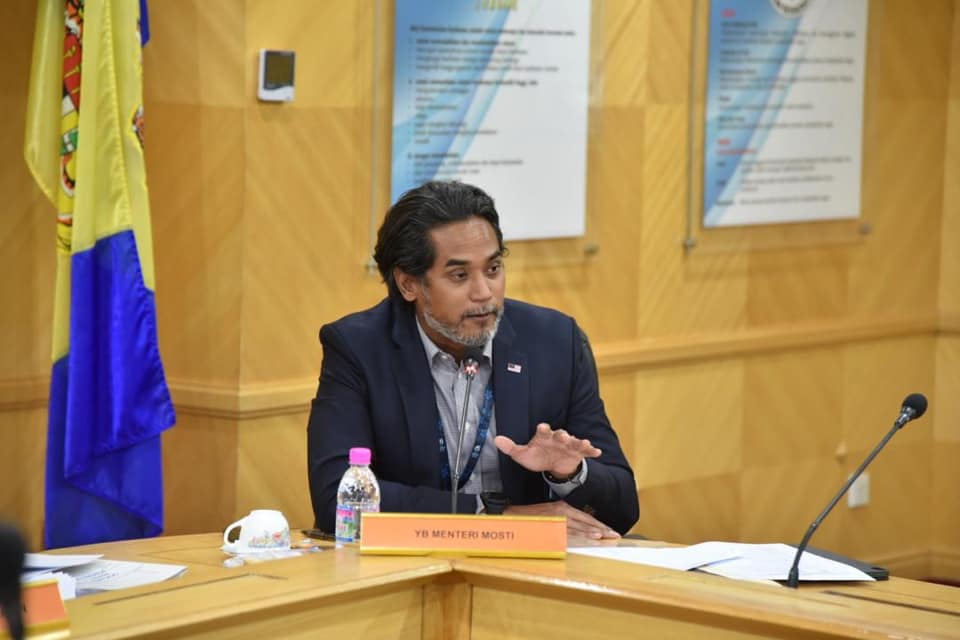KUALA LUMPUR, Sept 25 — The Ministry of Science, Technology and Innovation (MOSTI) is working towards producing human vaccines in Malaysia, according to a roadmap on national vaccine development.
Science, Technology and Innovation Minister Khairy Jamaluddin said the roadmap by MOSTI together with the Ministry of Health (MOH) would involve a public-private partnership by taking into account the status of local and clinical research in the country, as well as local industries’ vaccine production capabilities, in a bid to produce and manufacture human vaccines in Malaysia.
“In addition, MOSTI has also presented an application to establish a National Vaccine Centre under the 12th Malaysia Plan as a strategic platform with the concept of open innovation cooperation by all researchers from government agencies, universities, and industries to expedite the discovery process and development of various types of vaccines and clinical level therapeutic products,” Khairy told Senator Idris Ahmad in a written parliamentary reply on September 21.
Khairy had mentioned in the Dewan Rakyat on July 28 that since 2006, MOSTI and the Higher Education Ministry have funded 55 vaccine development projects involving 16 local institutions.
However, out of five human vaccine projects, only one — for cholera — reached the preclinical stage, whereas Malaysia has managed to develop 19 animal vaccines. Preclinical research assesses the features of a treatment or test (like the chemical makeup of a drug), after which the tests and treatments go through clinical trials to check if they are safe and effective for use in people.
Khairy also told the Dewan Negara Monday that Malaysia’s local vaccine manufacturing capabilities could be seen in three phases: fill-and-finish, pilot facilities and laboratories, and bulk commercialisation.
“Fill-and-finish is expected to be undertaken immediately once Malaysia gets access to a Covid-19 v vaccine,” said Khairy.
The Galen Centre for Health and Social Policy previously said sterile fill-finish operations were critical in pharmaceutical manufacturing, as it is the last step before the product is packaged and delivered to patients.
As the fill-finish operation requires higher investments to bring existing Malaysian manufacturing infrastructure up to standard to pass regulatory scrutiny, it may be less cost-effective compared to purchasing the vaccine directly from the manufacturer that would have economies of scale, said Galen.
Khairy said Malaysia cannot yet develop a Covid-19 vaccine because of the lack of facilities to produce human vaccines, prior focus on developing animal vaccines, and the early stage of Covid-19 vaccine research in Malaysia.
“However, in the effort to help the development of Covid-19 vaccines, the Ministry of Science, Technology and Innovation, the Ministry of Health, and the Foreign Affairs Ministry have formed a strategic collaboration to look for opportunities to establish strategic partnerships involving international bodies, agencies, and local companies to enable Malaysia to acquire facilities for vaccine and medical development to prevent Covid-19,” said Khairy.
“This collaboration is important in mobilising the country’s diplomatic relationships to ensure that Malaysia is given priority and involved in the process of vaccine production. Science diplomacy through this international network is expected to reduce the waiting period for Malaysia to get a vaccine.”
The National Vaccine Development Roadmap, he added, aims to study human vaccine needs in this country besides the coronavirus vaccine.
This roadmap will coordinate work integration between the government and scientists, medical practitioners, and industry players through a governance ecosystem and strategic approach to provide a system of collaboration between the ministries involved, various agencies, and manufacturers at the national, regional and international levels.
The roadmap will also prioritise the research and development of vaccines to support sustainable research development and to be prepared to face threats of disease and pandemics.
The types of vaccines required by the country besides the Covid-19 vaccine will also be refined by prioritising urgent needs. Advanced technology and requirements of vaccine production infrastructure in the country also need meticulous assessment.
The National Vaccine Development Roadmap also requires facilities to conduct clinical trials. Besides human vaccine production facilities, Malaysia will upgrade facilities to conduct pre-clinical trials and the first to third phases of clinical trials. Expert and trained personnel are required to conduct clinical trials and should comply with World Health Organization (WHO) guidelines.








